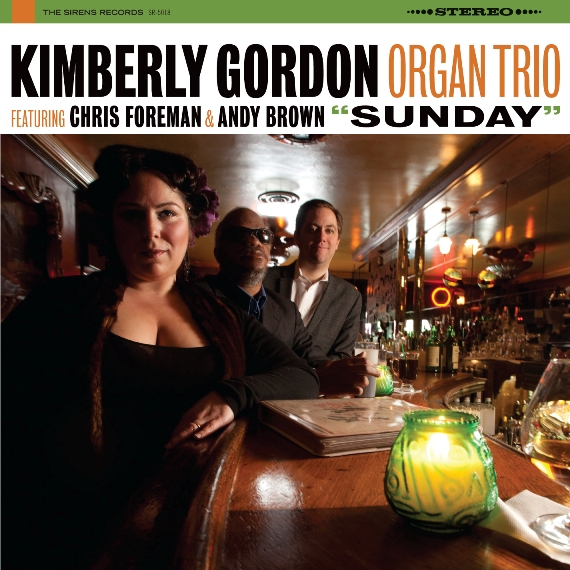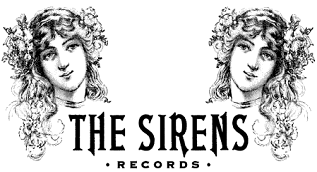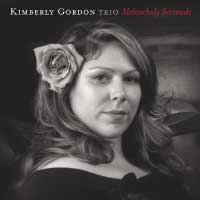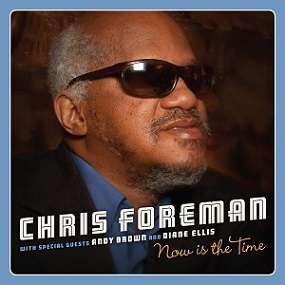Press / Music CD Reviews
A tale of two singers: Jordan, then Gordon this weekend at Green Mill
Just a couple of letters in their last names separate the vocalists at the Green Mill this weekend, but you shouldn’t have much trouble telling them apart. (Well, a couple of letters -- and 40 years.) You’ll want to try to catch them both.
Tonight and Saturday, the ageless octogenarian Sheila Jordan leaves her upstate New York home for her annual visit to her favorite nightclub. Jordan is a bona fide jazz legend -- both for the innovative (even courageous) that she revealed to listeners in the heady heyday of 1960s experimentalism, and for the apparent lack of any diminution in her skills or instrument some four decades later. In fact, I could swear that her voice has actually grown rounder and more lustrous with age.
For those who reveled in the asymmetrical iconoclasm of her first recordings, not to worry -- Jordan can still muster the foghorn low notes, the other-earthly swoops, and the glorious slurs, of both melody and diction, that make her an unmistakable presence. The uninitiated, or the merely impatient, still start to worry as she turns notes over and around, exploring their microtonal facets to licentiously redesign the melodies of Great American Standards as well as bebop classics.
But anyone thinking Jordan can’t find the center of each pitch needs to listen again. She has an unerring awareness of where each pitch balances; indeed, that’s what lets her drift all around its center, giving her music the hyper-expressivity of speech. (And if you can’t hear the occasional entrance of Native American chant in her solos, you’re just not listening.)
Even with all that, it’s a kinder and gentler Sheila Jordan who has plied her craft in Chicago over the last 20 years -- always with the help of local pianist Bradley Williams, justifiably lionized for his ability to accompany vocalists, who has led Jordan’s trio each time she’s performed in town. Kinder and gentler, but not softer or weaker: I’ve never left a Sheila Jordan performance without having experience some emotional transport.
I suppose there’s a first time for everything, but in this case, I wouldn’t count on it. Jordan plays three sets each night, starting at 9 Friday and 8 Saturday.
Chicago vocalist Kimberly Gordon navigates the currents of the Great American Songbook in a quite different manner. Where Jordan tacks away from the prevailing winds, Gordon sails straight into them -- particularly on late Sunday nights and into Monday mornings at the Mill, where she has led an organ trio for much of the last decade.
That trio, starring the unimpeachable Chris Foreman on the Hammond B-3 organ, propels the new album “Sunday” (on Chicago label The Sirens). The disc officially drops this weekend in Sunday’s CD-release show from 11 PM till 2 AM. Admission is only $4, which leaves you enough money for however many Monster Energy Drinks you need to get through work Monday morning.
A comparatively young old-schooler, bedazzled by songs from the 30s and 40s, Gordon has a deep and voluptuous timbre, which stands quite apart from the focused, reedy sound of Sheila Jordan. No surprise, then, that Gordon’s approach emphasizes tonal color to such a high degree: you go with your strength. (Some years ago I wrote that “If sapphires could sing, I imagine they’d have a similar sound” to Gordon’s voice; “Sunday” is a whole lovely sapphire bracelet, and the gems look -- or sound -- bigger than ever.)
But if Gordon did nothing more than sound pretty, the album wouldn’t merit a review. She enhances most of the tracks with smart phrasing and various devices that let her artistic persona -- by turns heartfelt, inventive, or coquettish -- to shine through. Gordon’s only previous album came out in 2004, and her growth as an artist has been extraordinary; it’s all the more noticeable to those who haven’t heard her in live performance, and for whom the last seven years’ hard work should come as an affectionate slap upside the head
Gordon’s lower register has always provided the most startling effect, and now, in her early 40s, her voice has an even darker sheen; it sounds to me like she’s actually extended her range down a few notes. Her lower register sometimes mimics the handsome, androgynous quality of Carmen McRae’s, to devastating effect. On the other hand, she has long evinced a rapt study of Ella Fitzgerald’s stylistic nuances, particularly in her inflection, her use of vibrato, and her juggernaut swing. During the frequent brief intervals when Gordon channels Fitzgerald’s mannerisms, “Sunday” could fool all but expert listeners into thinking that Ella had joined the session.
Throughout her career, Gordon has also indulged a natural hamminess, an outgrowth of the coquettishness mentioned above. She keeps it mostly under wraps on “Sunday”, and her decision to do so may represent the best example of her musical maturity: from my perspective, playful phrasing and cutesy inflections can undermine the sleek and solid musical structures that Gordon erects on the foundations of classic standards.
But even those of us who could do without such devices can hardly begrudge them on songs that so easily accommodate them. Among such songs on “Sunday” are “I’m Confessin’ (That I Love You)” -- a tune that belonged entirely to Louis Armstrong, the master of musical mugging -- and “Robbins Nest,” a bop-era tune so well-worn that it almost begs for a little self-consciousness tomfoolery.
And during the extended coda that closes the bossa nova winner “So Danco Samba”, Gordon uses similar devices to provide an extravagant (and marvelous) imitation of Brazilian percussion instruments that only a musical Scrooge could reject. (Comparing this track with Fitzgerald’s own recording, from 1966, offers an object lesson in how Gordon learned to swing.)
Throughout the disc, Chris Foreman matches Gordon's deep swing while providing miniature orchestrations that neatly frame her sound and style. Foreman makes his usual solid use of the B-3’s wide range of sounds -- from majestic curtains of billowing harmony, to the knife’s-edge attack associated with Jimmy Smith, to the roller-rink/ballpark tones that cushion Gordon’s bluesy reading of the title track. (Foreman is better known as the in-the-pocket force of nature who personifies the Deep Blue Organ Trio, who have their own new album, Wonderful!, and who perform September 2 at the Chicago Jazz Festival.)
Rounding out the trio, guitarist Andy Brown reminds listeners of why so many singers have him high on their speed-dial, with chords that blend seamlessly with those of the organ, and solo flights of simple elegance and pure pleasure. Brown’s unpretentious and wholly essential contributions help make “Sunday” a largely lovely, and occasionally transcendent, addition to the Chicago discography.
CORRECTION: In the original version of this review, I wrote that "Sunday" was recorded in live performances at the Green Mill, which turns out to be a total fabrication on my part -- it's a studio album from start to finish. The fact that I thought I'd heard applause after several tracks, however, is a pretty good indication of how well the album captures this trio's Sunday-night shows. (Either that, or a sign of encroaching senescence. I choose the former.)
Neil Tesser, Chicago Jazz Music Examiner, August 19, 2011
Back To Top
When one thinks of the typical organ trio, it is a group consisting of organ, guitar and drums. Sunday is a bit different in that
in addition to organist Chris Foreman and guitarist Andy Brown, the trio features Chicago-based singer Kimberly Gordon. Rather than
trying to sing drum parts, she essentially assumes the role of a tenor-sax, with Foreman and Brown keeping such solid rhythm that
drums are unnecessary. Ms. Gordon has an attractive voice, always swings and is an excellent scat-singer. In addition, her interpretations
of lyrics are generally infectious. In addition to the title cut, some of the highpoints of this happy set include “I’m Confessin’,” “So Danco Samba,” “Robbins Nest” and “Love You Madly.”
The solos are excellent and Kimberly Gordon fits in perfectly as part of the group, the obvious leader yet one who treats her sidemen as equals. This is fun music,
easily recommended and available from www.thesirensrecords.com.
Scott Yanow, THE LOS ANGELES JAZZ SCENE, November/December, 2011
Back To Top
… In a declamatory voice as vivid as Dinah Washington the songstress zips through ten vintage tunes from the likes of Duke Ellington,
Illinois Jacquet/Sir Charles Thompson and Antonio Carlos Jobim. On her former Sirens release, Gordon stuck mostly to ballads and
Foreman played piano instead of his Hammond B-3 organ. Large dollops of tasty soloing from the latter and Andy Brown who performs on
a big box Gibson in the tradition of the Charlie Christian line of guitarists. The 1968 Mama Cass chart topper seems a little uncomfortable
and the Jobim samba is a tad shaky but otherwise this is a world class Jazz vocal recital (replete with some scatting) that on the whole is taste personified.


 2. I'm Confessin'(That I Love You)
2. I'm Confessin'(That I Love You)
